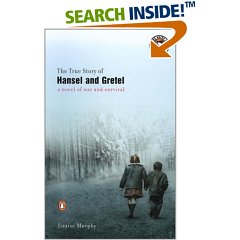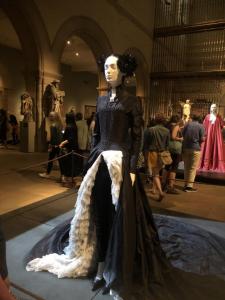A lot of people seem to think that by this time in my life I should have figured out the whole God thing. Answers for every question, you know?
This is particularly true given my profession.
So I figured it might not be a bad idea for me to revisit some of the basics as we enter a brand new year. First on my list to consider: Does God really exist? Recently, a friend invited me to explore this great site on NPR where random people contribute essays under the title This I Believe. If you take a look at the site I am quite sure one or two will jump out at you. Of course, given my ornery nature (and possibly my recent spiritual ponderings), I was immediately drawn to the Penn Jillette essay explaining why he is an atheist.
Recently, a friend invited me to explore this great site on NPR where random people contribute essays under the title This I Believe. If you take a look at the site I am quite sure one or two will jump out at you. Of course, given my ornery nature (and possibly my recent spiritual ponderings), I was immediately drawn to the Penn Jillette essay explaining why he is an atheist.
Do I believe in God? Hmmm, this was an interesting question to consider, since its answer is almost always assumed to be an unequivocable “yes!”. After all, I grew up in the church and I currently support my lavish lifestyle by working for the church (considered by some to occasionally function as the earthly institution of God). So . . . what’s not to believe?
Penn Jillette’s essay made me think, though, about whether I also assume the obvious too often and don’t take the time to be thoughtful and intentional about this important issue.
And as if to underscore this recent revelation (coincidence? divine intervention?), I also just finished reading a very powerful book called The True Story of Hansel and Gretel: A Novel of War and Survival by Louise Murphy. 
Based on the fairytale of Hansel and Gretel, the book tells the story of a Jewish man who is forced to abandon his children in a forest in Poland in the middle of winter hoping that they might find a way to survive until the war is over. The author recounts a conversation the father (known in the book as “Mechanik”) has with one of his rebel colleagues. Here’s how it goes:
“At night he (Mechanik) talked to her (his missing wife) in his head as he lay next to the others trying to get warm, trying to go to sleep. First it was as if she was alive and lying beside him. He would tell her about the day and what they had done. Then he noticed that the talking to her had become like a prayer, so he stopped doing it and lay staring at the cold sky until he fell asleep. You only prayed to dead people. Or God. And he didn’t believe in God and couldn’t accept that she was dead. He was left lying on the frozen earth with the dark sky above and his heart unable to take comfort from anything.
“At least I don’t believe in God,” he told the Russian one morning.
“And if you did believe, Mechanik, what then?”
“Then I’d kill myself. Because if God is all-powerful and all-knowing, he must have no pity. He looks down and sees everything and doesn’t bring the evil to an end. I wouldn’t live if I thought a God could end the pain and didn’t.”
“And what good would your death do?”
“It would teach God a lesson.” The Mechanik walked on and didn’t care that the Russian laughed. He knew it was true, and he was glad that he didn’t believe. It saved his life every day.”
The whole book was very moving, but this passage stuck out to me because it reminded me that the basic belief that God exists is not so easy for everyone, especially in the face of such extreme suffering like Mechanik and his family endured. And, clearly, Penn Jillette would agree with Mechanik.
I admit I have never been in a situation so extreme as the one the book portrays, but I’ve had a few moments when I’ve questioned the great big universe, shaken my fist at the sky and demanded and answer that didn’t seem to materialize. In the end, though, I must still insist there must be something out there on the other side. See, it is just inconceivable to me to think that I might be ultimately responsible or in charge of things (and if you know me, this idea might scare you, too).
Not wanting to depend on myself does not sound like very convincing reasoning for the existence of God, I’ll admit. And, I guess on an intellectual level I understand Mechanik’s and Jillette’s refusal to believe in God . . . it is much less complicated and, on the surface, provides a bunch of answers that appear to be clear, concrete, tangible. But I think that, honestly. . . everybody believes in something beyond what’s right in front of them, even if that something is an extension of themselves. So, when Jillette says “This I believe, that there is no God”, I think that he is really saying, “This I believe, that I am God.”
Pretty much the only thing I’ve figured out so far on this path of life is that it doesn’t look like I am going to be figuring it out anytime soon. All along in my struggle for definitive answers I have come back again and again to the conclusion that, if there are any, I don’t have access to most of them.
But, for all the reasons I tried to articulate above and for so many more that are mysterious and beyond my ability to express, I think for this moment I can definitively say that I believe there is a God.
And, she is not me.
That indisputably true statement right there is enough to at least strongly suggest the existence of a benevolent deity, don’t you think?











